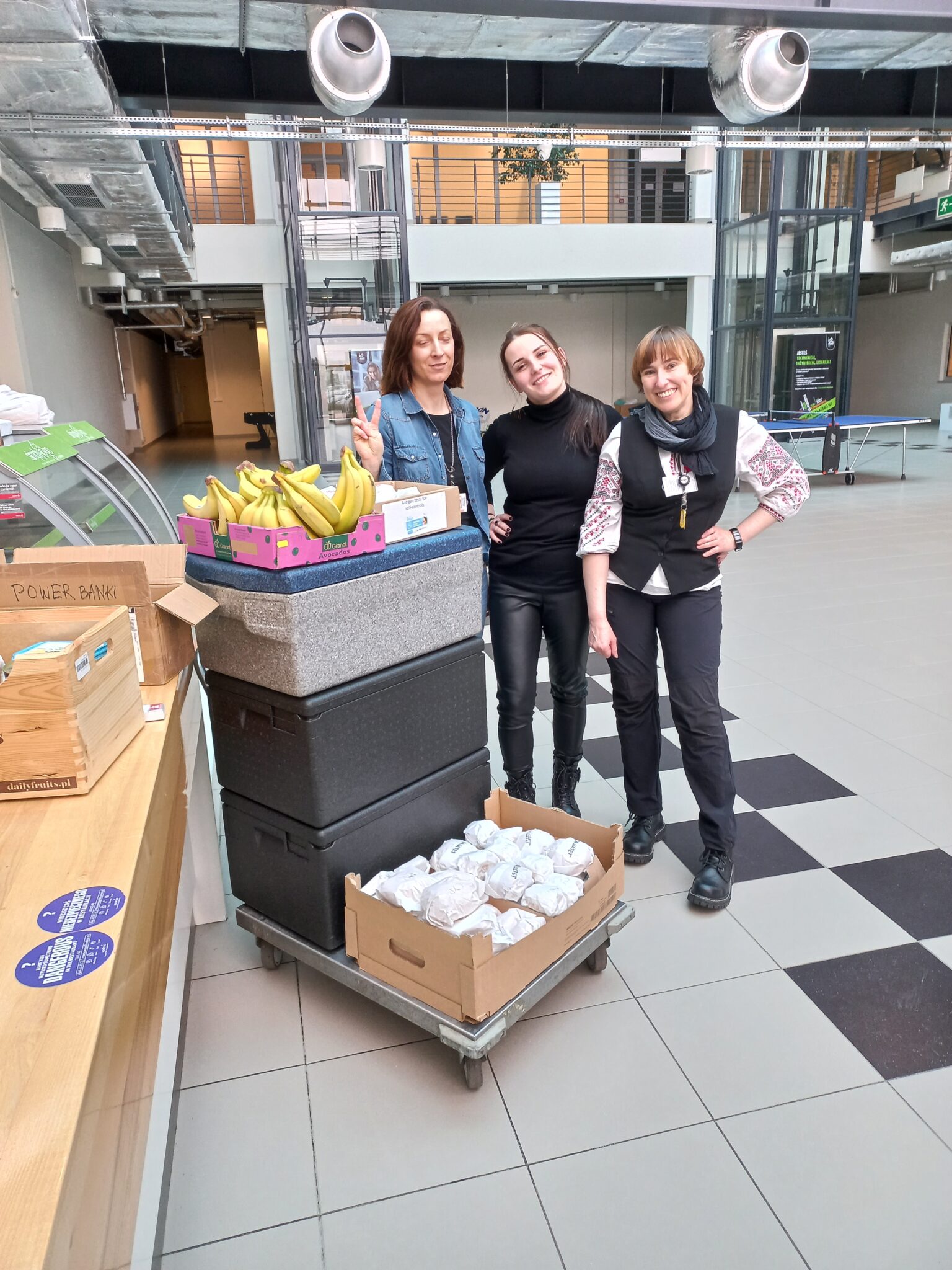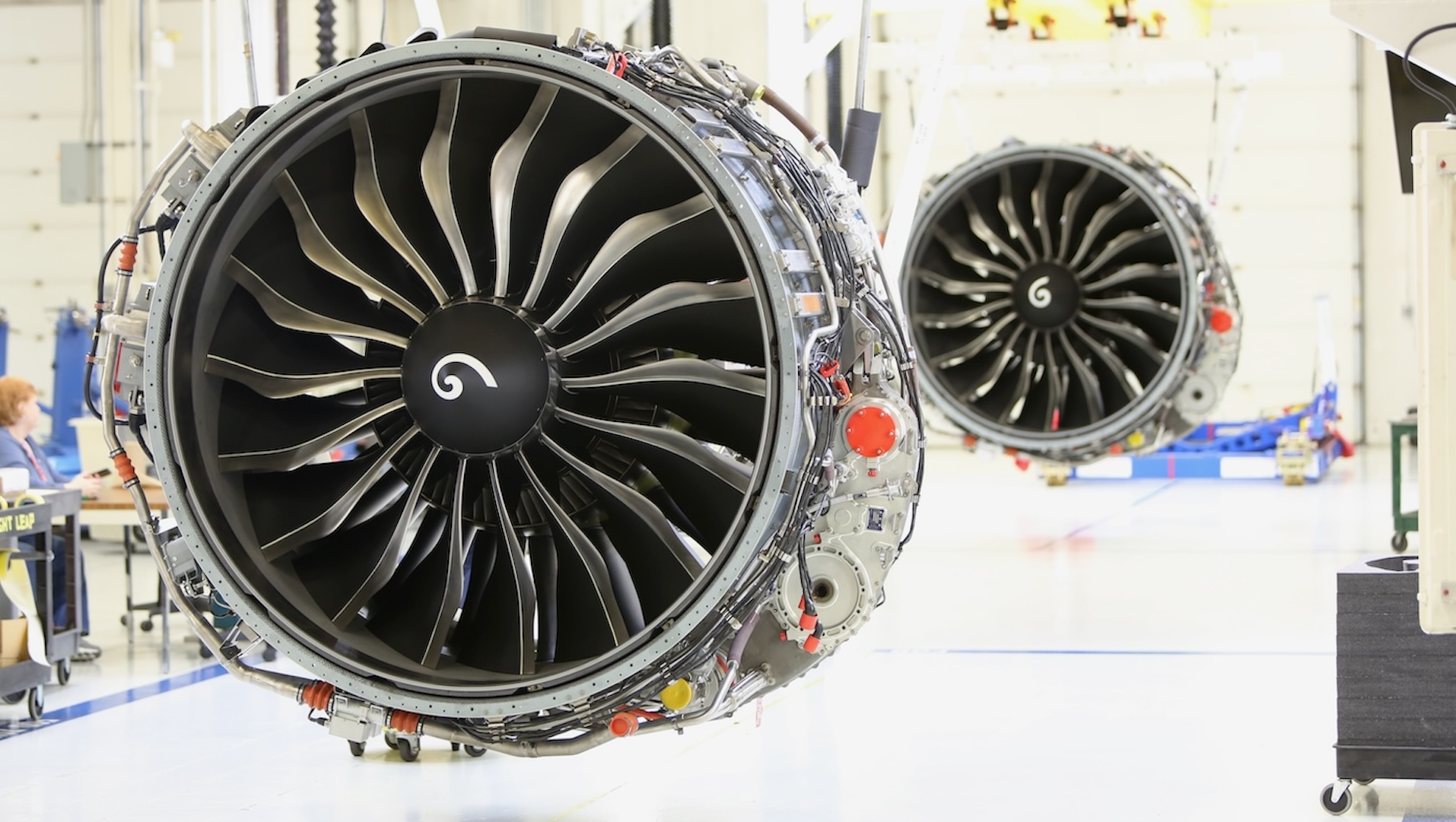Over the last two months, as the situation in Ukraine has worsened and waves of refugees have fled across the Polish border and into the Czech Republic, GE Aviation employees in the area have stepped up to provide aid. In some cases, teams of GE Volunteers have spent hours assembling and delivering care packages to Ukrainians arriving in railway stations around Warsaw — necessities like shampoo, hand sanitizer and diapers, as well as fruit, water, hot soup and thousands of sandwiches.
Others have taken their support a step further by picking up refugees at border crossings and driving them to destinations around the country or putting people up in their own homes. It’s an ad hoc outpouring of aid that has come straight from the heart.
“It’s sad to see so many people in need, mostly women with children and the elderly,” says Estera Slawinska, a staff engineer who works at GE Aviation’s Engineering Design Center (EDC) in Warsaw. “They are sad, hungry, often extremely exhausted and lost. When you see them, you can’t stop helping. And there is still a feeling [that] more can be done.”
After a recent visit to GE Aviation sites in the area, President and CEO John Slattery reflected on the response of the teams there. “I was moved by the generosity of our colleagues in the region, rising to the challenge of caring for refugees and coming together in support of one another,” he said.The needs evolve from week to week. In early March, Slawinska and two colleagues prepared around 100 sandwiches, bought bananas, water and juice, and then delivered the food to the Western Railway Station in Warsaw, along with pizzas, hot tea and doughnuts provided by the campus canteen at the EDC. At one point, GE Volunteers were delivering 4,000 sandwiches each week.
Katarzyna Frydrycka-Zabadaj, a staff technical product manager based in Warsaw, has hosted 20 people at different times at her home, helping them to travel on to other countries in Europe or to look for jobs in Poland if they plan to stay. Recently, she hosted three generations of one Ukrainian family — a grandmother, mother and 5-year-old daughter — and was expecting another family. “But currently it is too dangerous for them to leave their city and travel to Poland,” Frydrycka-Zabadaj says. “I want to help, as I want to believe that if I, or my family, would have to run away from our country, someone would help us as well.”
The GE employees see a lot of themselves in the Ukrainian refugees they are helping. “A retired air force pilot, a shop owner with his wife and five kids, a schoolteacher with her son, a pregnant lady with her cat — just normal people running away from the horrors of war,” says Tomasz Kalinowski, a design engineer also based in Warsaw. “We give them a place to stay for a night or two. We feed them, do their laundry, we play with their kids. We buy them bus, train, plane tickets. We sit with them, drink hot tea and listen to their stories. Sometimes we cry together. We try to make them feel safe.”
The spontaneous aid work has kept the volunteers working pretty much nonstop for the past eight weeks. But their commitment to helping the waves of refugees remains firm.
“I can’t look at such injustice and suffering and do nothing,” says Kalinowski. “Also, I want to teach my kids that helping those in need is the right thing to do. I learned that sacrificing some of my privacy is nothing compared to what these people are going through.”
Others have taken their support a step further by picking up refugees at border crossings and driving them to destinations around the country or putting people up in their own homes. It’s an ad hoc outpouring of aid that has come straight from the heart.
“It’s sad to see so many people in need, mostly women with children and the elderly,” says Estera Slawinska, a staff engineer who works at GE Aviation’s Engineering Design Center (EDC) in Warsaw. “They are sad, hungry, often extremely exhausted and lost. When you see them, you can’t stop helping. And there is still a feeling [that] more can be done.”
 Top: GE Aviation's Janek Biskupski has made countless trips from Warsaw to the border delivering food and necessities to those in need, in addition to picking up refugees on his way back. Above: GE’s Estera Slawinska (left) and two of her co-workers with a cart of food they delivered to the train station.
Top: GE Aviation's Janek Biskupski has made countless trips from Warsaw to the border delivering food and necessities to those in need, in addition to picking up refugees on his way back. Above: GE’s Estera Slawinska (left) and two of her co-workers with a cart of food they delivered to the train station.
After a recent visit to GE Aviation sites in the area, President and CEO John Slattery reflected on the response of the teams there. “I was moved by the generosity of our colleagues in the region, rising to the challenge of caring for refugees and coming together in support of one another,” he said.The needs evolve from week to week. In early March, Slawinska and two colleagues prepared around 100 sandwiches, bought bananas, water and juice, and then delivered the food to the Western Railway Station in Warsaw, along with pizzas, hot tea and doughnuts provided by the campus canteen at the EDC. At one point, GE Volunteers were delivering 4,000 sandwiches each week.
Katarzyna Frydrycka-Zabadaj, a staff technical product manager based in Warsaw, has hosted 20 people at different times at her home, helping them to travel on to other countries in Europe or to look for jobs in Poland if they plan to stay. Recently, she hosted three generations of one Ukrainian family — a grandmother, mother and 5-year-old daughter — and was expecting another family. “But currently it is too dangerous for them to leave their city and travel to Poland,” Frydrycka-Zabadaj says. “I want to help, as I want to believe that if I, or my family, would have to run away from our country, someone would help us as well.”
The GE employees see a lot of themselves in the Ukrainian refugees they are helping. “A retired air force pilot, a shop owner with his wife and five kids, a schoolteacher with her son, a pregnant lady with her cat — just normal people running away from the horrors of war,” says Tomasz Kalinowski, a design engineer also based in Warsaw. “We give them a place to stay for a night or two. We feed them, do their laundry, we play with their kids. We buy them bus, train, plane tickets. We sit with them, drink hot tea and listen to their stories. Sometimes we cry together. We try to make them feel safe.”
The spontaneous aid work has kept the volunteers working pretty much nonstop for the past eight weeks. But their commitment to helping the waves of refugees remains firm.
“I can’t look at such injustice and suffering and do nothing,” says Kalinowski. “Also, I want to teach my kids that helping those in need is the right thing to do. I learned that sacrificing some of my privacy is nothing compared to what these people are going through.”





